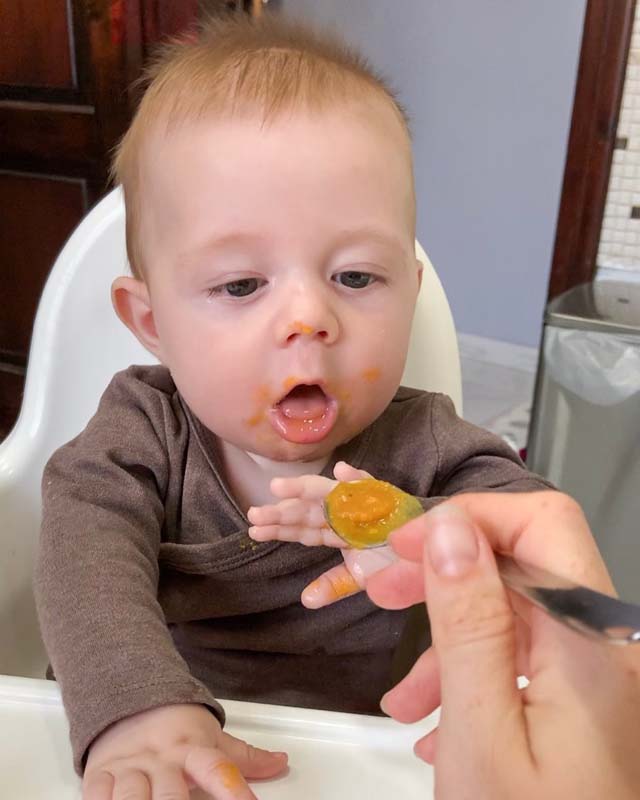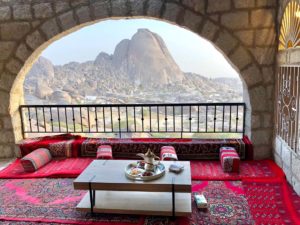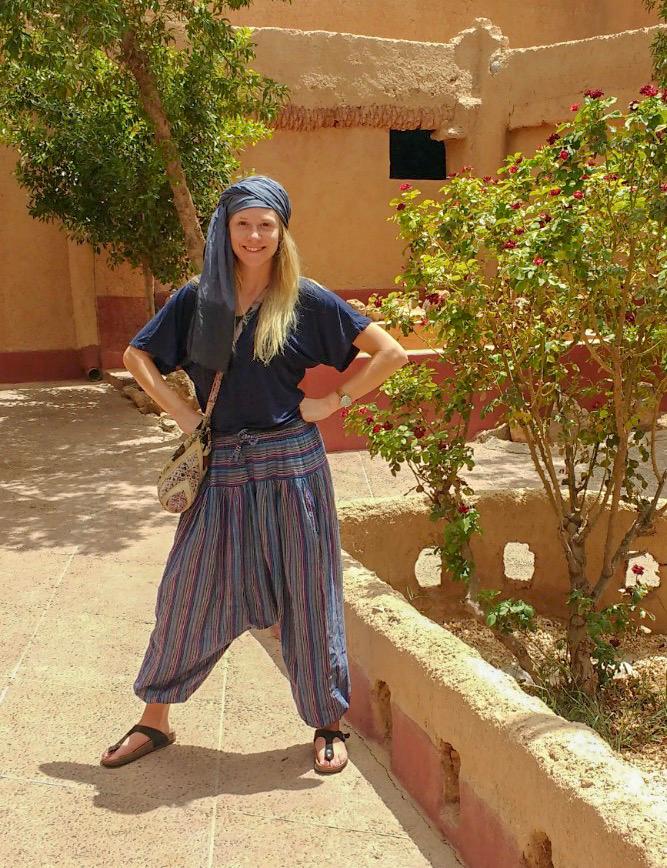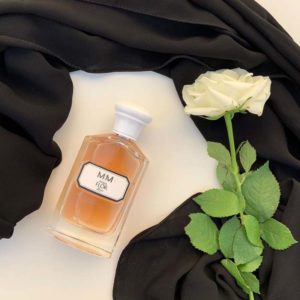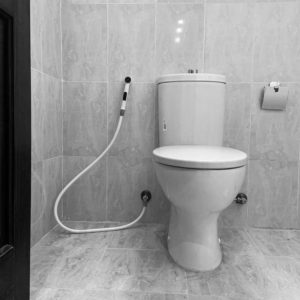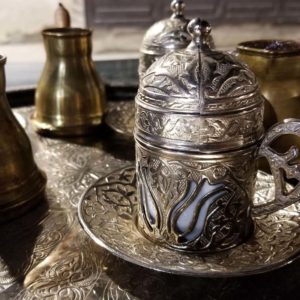Saudis are known for having large families, but they extend even further when you count “milk siblings.”
::
Wet nurses are still a common part of Arab culture (women who breastfeed a baby in addition to, or in place of, the mom). And according to Islamic tradition, when a baby drinks the breast milk of another woman, that baby becomes “milk siblings” with the other woman’s children, thus they are prohibited from marrying one another in the future. That also means the “siblings” can interact when they’re older, and the females wouldn’t have to be covered. Same with an adopted son – the mother wouldn’t have to cover in front of her son when he reaches puberty if he drank her breast milk as a baby.
::
I just had a friend offer me her extra frozen breast milk for Abel. If I accept it and he drinks the milk, he will be considered a brother to her girls. Isn’t that fascinating?! (That’s Abel in the pic – eating 1st solids today!)
::
Breastfeeding in general seems to be experiencing a revival in Saudi. For a long time, formula had been aggressively marketed to new mothers and early weaning was very common. According to a few NIH studies I skimmed, only around 30% of Saudi mothers exclusively breastfed to 6 months. The lack of adequate support, education and resources, in addition to cultural practices (like giving newborns water, believing it’s not good to breastfeed while pregnant, thinking they must wean in order to get pregnant, etc.) that hinder sustained breastfeeding, have contributed to mothers’ tendency to use formula.
::
But hospitals are now rolling out pro-breastfeeding campaigns and we even noticed a difference in the 16 months between our sons’ births. With Ezra we were told to be VERY clear and firm with the nurses that he was not to get any formula in the nursery, and the nurses seemed surprised that we wanted Ezra in the room with us at all times. Then with Abel it was just assumed he‘d be in the room with us and assumed that I’d be breastfeeding.
::
The Saudi Ministry of Health now endorses breastfeeding on their website and new laws prohibit doctors and pharmacies from recommending formula, offering discounts on it, and having any marketing materials displayed.
::
I’ve never seen a mother breastfeeding in public here (maybe they’re just adept at hiding it under their abaya), so I spend a lot of time feeding Abel in the car, or sitting on the floor of mall restrooms . Restaurants often have dividers that you place around the table for privacy (so women can remove their niqab to eat) and those have come in handy as well.
::
I’m happy to see the Ministry of Health taking such a positive stance on breastfeeding and hospitals enacting new policies. Hopefully Saudi mothers will have the knowledge and support they need to breastfeed their babies for the recommended amount of time, as their health and circumstances allow!
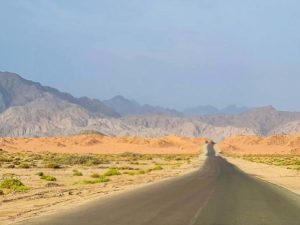
Our Journey through the Land of Midian in Saudi
When I was a child, learning about Moses in Sunday school and watching VeggieTales and The Prince of Egypt, I thought of places like the

